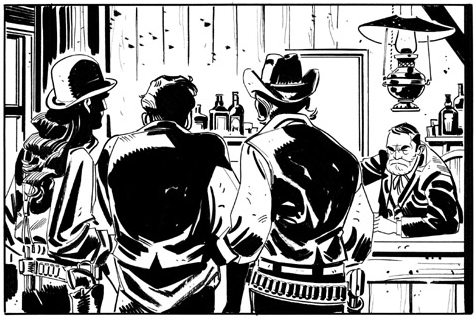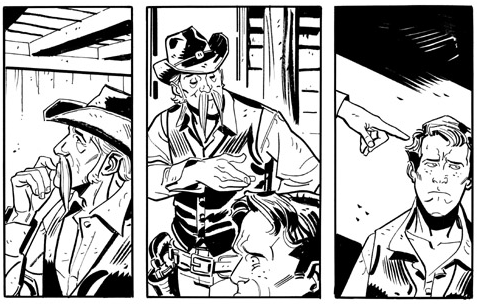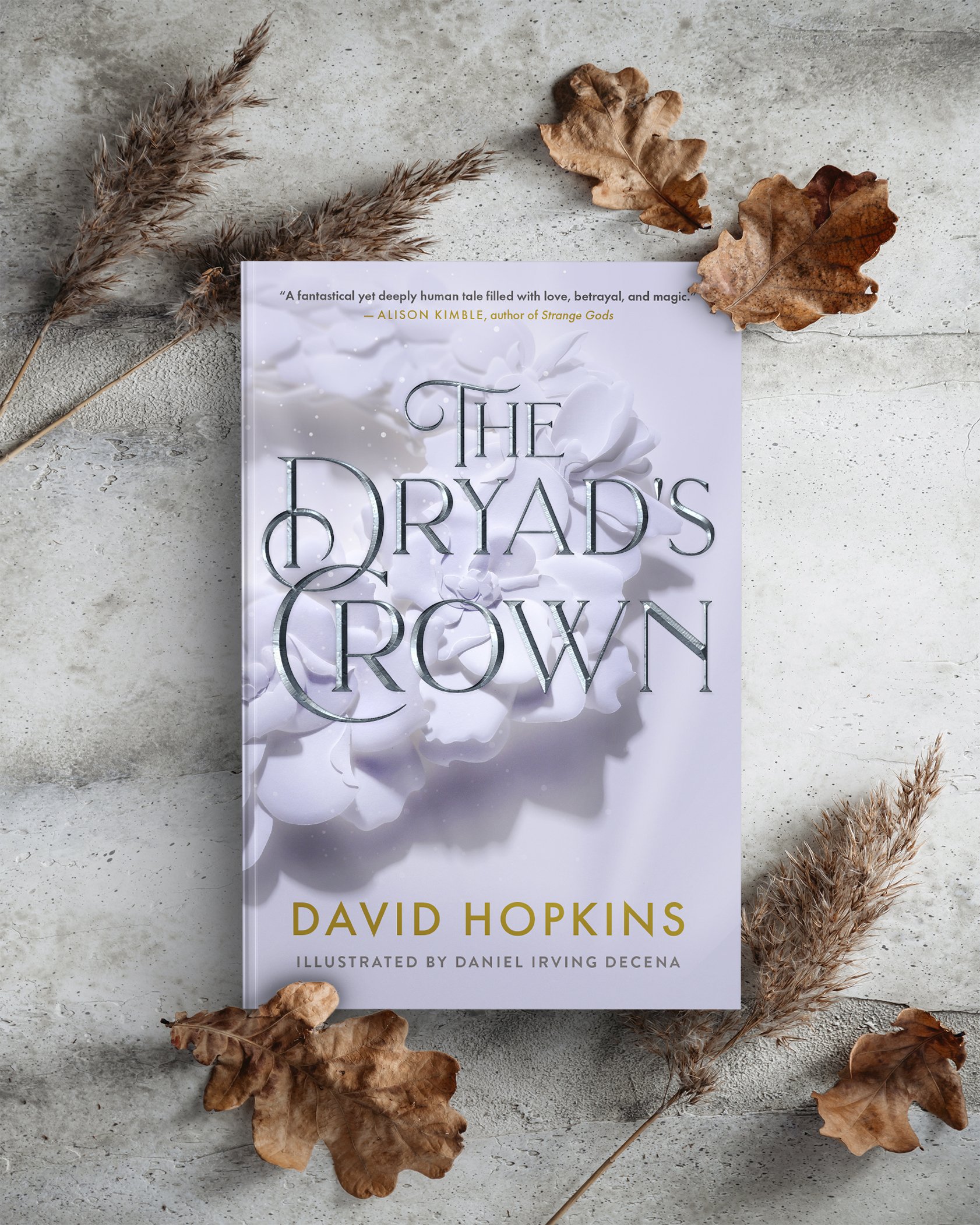Obviously, this post is SPOILER HEAVY for people who haven't seen LOST's series finale. If you haven't seen the finale, you should probably avoid the Internet today.
Let me start by saying that LOST is still my favorite TV show. Even though, I fully acknowledge that LOST is not the best show on TV. That honor belongs to one of the HBO epics: The Wire, Deadwood, or maybe Six Feet Under -- better writing, better directing, better acting, and a better cohesive narrative. Yes, LOST is my favorite, we love what we love, but the finale certainly did not help.
I heard an interview on the Creative Screenwriting podcast where Damon Lindelof said there were some mysteries they did not feel obligated to answer. C.S. Lewis did not answer why the wardrobe leads to Narnia. J.K. Rowling does not need to answer why some people are magic and some are muggles. In contrast, George Lucas did explain the Force with midichlorians, and you all remember how horrific that was. So yes, I agree with Lindelof. Some questions do not need to be answered. I'm cool with that.
I'm also cool with the mythology as it exists. The Island is some vital fount/keystone/lynch pin of "life and death" in this world. Jacob must keep the Monster from leaving the island by protecting the heart of the island. The heart is a plot device you waited to introduce in one of the last episodes, but whatever. I'm cool. Heart of the island.
So what are my complaints?
#1. The final battle. The final sacrifice. The concept of a fight on the side of a cliff in the pouring rain is kinda cool -- Locke with his knife and Jack with his furious fists. However, Sayid vs. Keamy in season four and Jack vs. Ethan in season one were more exciting fights. There was more dramatic tension, and sense of "that dude has to die and this is that moment." Maybe I felt this fight was lacking, because it was a fight that was only fighting. There was no high stakes banter like Skywalker vs. Vader in EMPIRE STRIKES BACK. There was no big reveal. No sense of impeding and immediate doom for all humankind if Jack failed. And in the end? Kate shot Locke in the back. Deus Ex Machina? (A few points for her action hero worthy quip about saving a bullet.) Oh, and Jack kicked Locke off the cliff. So that was it?
It was a tad anti-climatic. Like the previous episode, I was hoping for an awesome showdown between Ben and Widmore. They certainly set it up. Then Ben just shoots him. M'kay.
We never got to see if the world really would be destroyed if the Smoke Monster escaped. Not that we needed a scene of him ravaging New York City in a Godzilla homage, but there should have been some tangible indicator of the dire consequences.
By the way, if Hurley had decided to be the candidate to replace Jacob would he have been the one fighting Locke on the cliff? I know Jacob was trying to give them a choice, but I don't think everyone was equally qualified for that role. Of course, even Hurley would have been saved by Kate-with-rifle. We hope.
Then Jack makes his final sacrifice by staying behind, saving Desmond so he could (we assume) return to Penny and his son, and putting the cork back in the hole. Here's my problem. We have too many LOST finales that involve a guy and a simple machine. Desmond turns a key. Ben pushes a donkey wheel. Juliet with a rock and a nuclear warhead. And now Jack puts the cork back. I was hoping LOST would build up to something more... exciting? Something different? Then Jack, known for his sensitive crying nature, is in a hole, crying. Again.
This sounds like I'm complaining because the show didn't end the way I wanted it to end. However, I think there's a valid argument here. The writers should have used a new idea from their finale playbook. Big fight and reset the haywire magical machine? Done and done and done. LOST has always been good at blowing minds, but there wasn't much to this one.
I did like Jack stumbling back to the bamboo field and the first scene of LOST playing in reverse. Our favorite dog Vincent lies by his side. An airplane flies overhead. Extreme close-up on Jack's eye closing, he dies. That was cool.
#2. Heaven/The Matrix. Here's my biggest gripe. The flash-sideways world is a post-death Matrix. A world they created (?) where, once they became self aware, they'd be able to meet up again for one last time. Everyone died at different times, because everyone eventually dies, but they all converged here. They all meet for a final island reunion in the after life. It's more than a little cheesy. Part of the problem is that this crucial aspect of the LOST mythology is seemingly disconnected from the Island. Was there something about the Island and it's "life/death" energies, and their proximity to this energy that allowed this world to exist for them? We'll never know. A few words from Hurley, the new Jacob, would have done a lot to explain this scenario -- or even better, an older Walt steps up to introduce his newly created world. Not a huge monologue, but a few words would have gone a long way. Jack's dad didn't quite deliver with his exposition.
At the end of season four, we knew that mysticism would ultimately trump science. Ben goes down to the Orchid Station (science). He breaks the wall and moves to a deeper mystery where we see the light and the donkey wheel (mysticism). Clearly, the writers were telling us which one will "win out" in LOST. However, even mysticism in a story must follow a framework. I feel like the Heaven/Matrix world (sans any explanation of how it's connected to the island) is a Hail Mary pass to tie up loose ends, and give one final surprise. Which, yes, I was surprised, but not in a way that contributes to the integrity and mythology of the series. Can anyone in the world live in this Heaven/Matrix world?
I do like aspects of this Matrix. Jack's son was a fabrication of his desire to be a good dad. In Jack's fantasy world, he perfectly balances family and work -- and excels about both. It's a cool thought that they find completion off island. Although, because it's "off island," I wonder why it exists at all. This is not the same thing as not explaining why the wardrobe leads to Narnia. This is like showing a second Narnia and not bothering to explain why it matters to the people in the first Narnia.
That would be rather crucial.
I'm done with my rant. For now. What are your thoughts?


